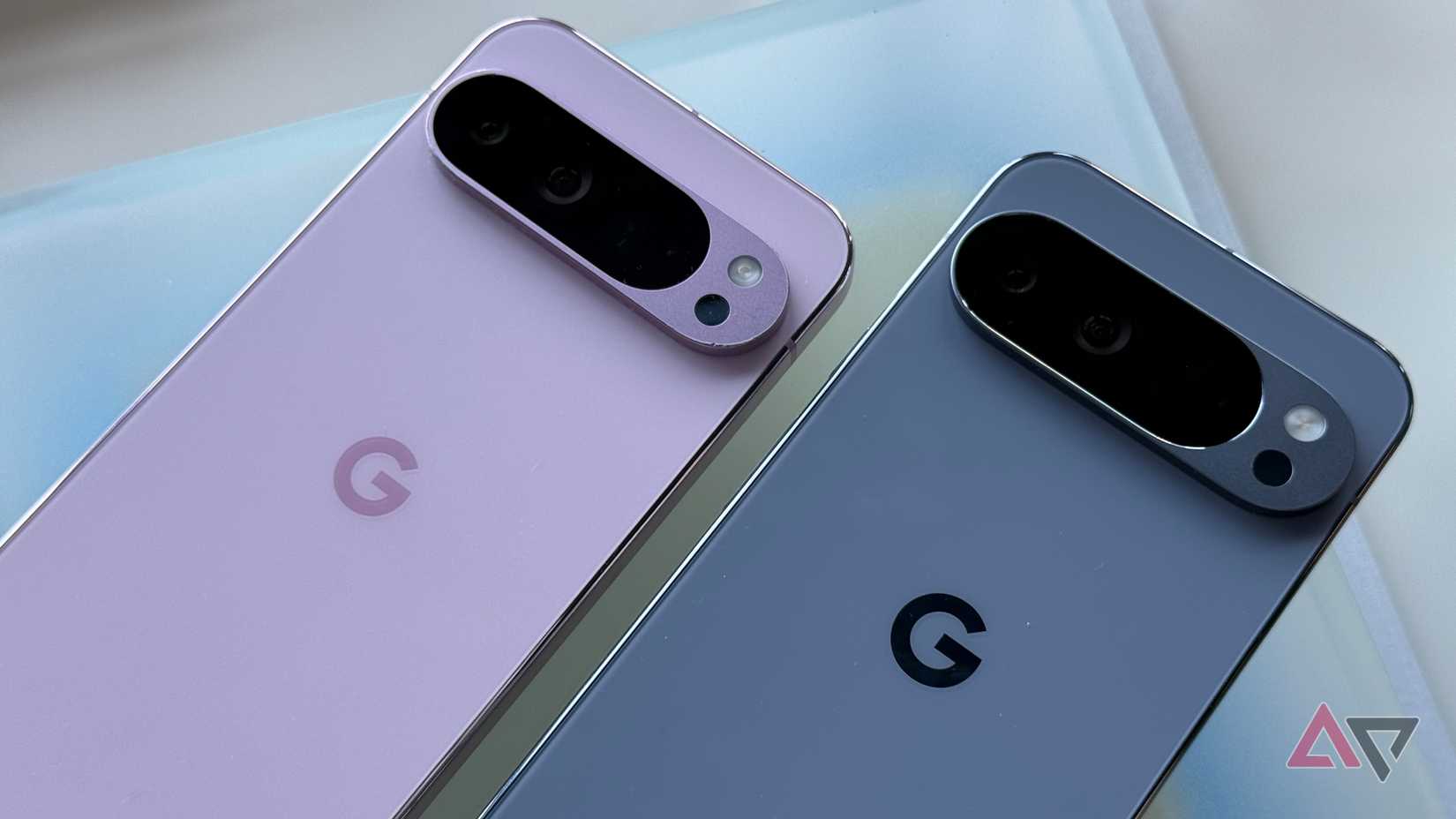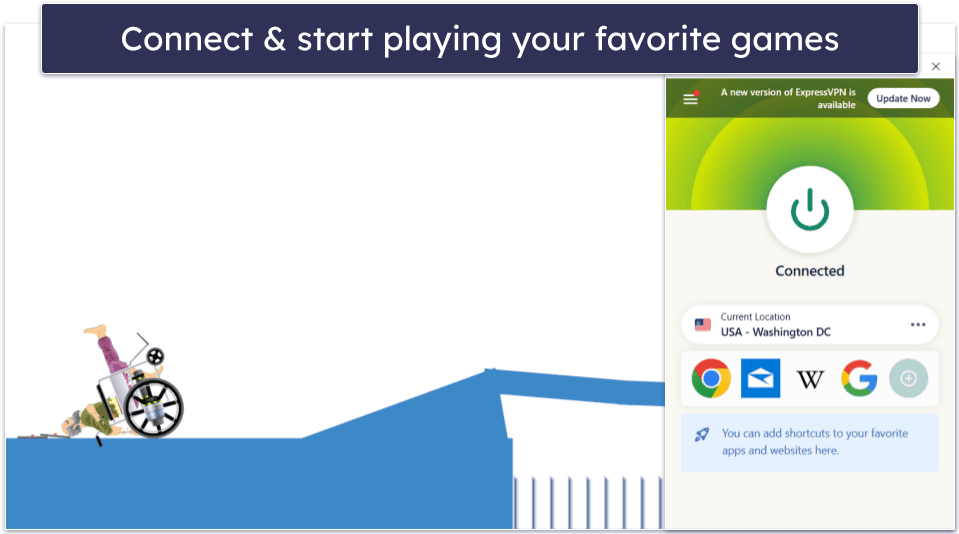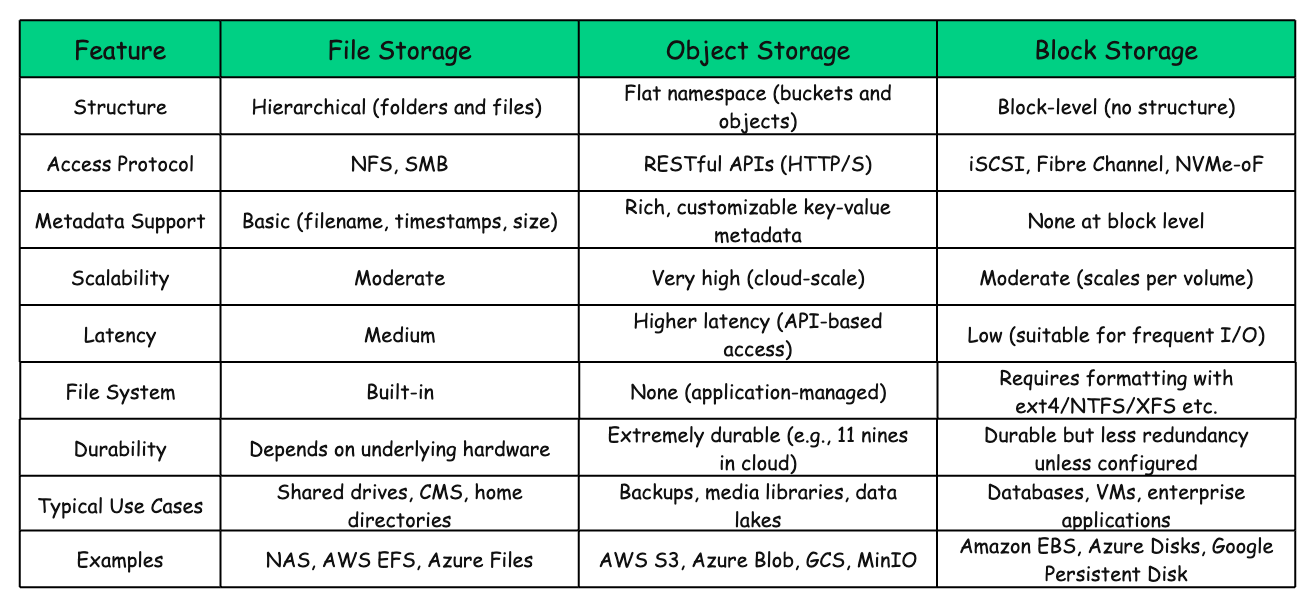
Penka Hristovska
Updated on: June 2, 2025
Fact-checked by Eric Goldstein
Only 3 Steps (Quick + Easy) to Unblock Games at School in 2025:
- Download and install a VPN. My top recommendation is ExpressVPN because it reliably circumvents all sorts of methods schools use to block online games on the network.
- If your school blocks VPNs: Enable your VPN’s obfuscation feature. Each VPN handles obfuscation differently. For example, ExpressVPN activates it automatically, while others require you to manually turn it on.
- Connect to a VPN server. Pick a nearby server for a stable connection and the best possible speeds.
- Open the game you want to play. That’s it, you’re all set to start playing your favorite games at school!
A VPN is the easiest and safest way to unblock games on a school computer. It encrypts your internet traffic, making it unreadable to the school network administration. This helps you bypass common school blocks like firewalls, DNS filters, and IP address restrictions that prevent access to gaming sites and apps on the school network. Many reliable VPNs even offer obsfuscation to conceal your VPN use, making it harder for the school to detect or block your connection.
I tested 20+ VPNs against the most common methods schools use to block games. My top choice is ExpressVPN because it’s tough to detect and consistently bypasses all types of restrictions. Editors’ Note: ExpressVPN and this site are in the same ownership group.
How to Unblock Games on a School Computer
1. Pick a high-quality VPN.
My top recommendation is ExpressVPN because it has advanced features that bypass network filters and firewalls. Plus, its lightning-fast speeds ensure smooth gaming once you’ve unblocked your favorite games.

2. Download and install the VPN to your device.
Go to your VPN provider’s website, then download and run the installer. This shouldn’t take more than a few minutes.
If your school doesn’t allow you to install apps (or VPN apps, specifically), you can try installing a VPN extension to your browser. The VPNs I recommend offer lightweight extensions (including for Chrome) that can unblock websites directly in your browser.

3. Open the VPN app, choose a server, and start playing.
You’re now all set to safely play games on your school computer.
Quick Summary of the Best VPNs for Unblocking Games on a School Computer in 2025



🥇1. ExpressVPN — Best VPN for Unblocking Games on a School Computer in 2025
ExpressVPN is my top recommendation for unblocking games on school computers. It works on desktops, tablets, and even Chrome OS devices, making it a good fit for school-issued Chromebooks. The VPN also offers a secure browser extension for Chrome and Firefox, which is perfect if you’re gaming in a browser.
The VPN consistently bypasses common blocks that school network administrators use, such as keyword filters, IP blocks, firewalls, and DNS blocks — because it uses its own DNS servers. Thanks to its obfuscation feature, it disguises your VPN traffic, too, making it harder for your school to block you from using a VPN.

Read our full ExpressVPN review
🥈2. Private Internet Access — Excellent VPN for Unblocking Games With a Great Browser Extension
PIA is a great pick if you can’t install a VPN app on your school computer. It has a secure and feature-rich browser extension that bypasses DNS filters, IP blocks, and firewalls to allow you to play games in your browser.
If you can install the PIA app on your device (ChromeOS included), you can customize features like encryption levels for better speed or set it to auto-connect when using your school’s Wi-Fi. PIA also offers obfuscation through Shadowsocks proxy servers, helping you bypass advanced VPN blocks on your school network.

Read our full Private Internet Access review
🥉3. NordVPN — Super Secure VPN for Unblocking Games at School
NordVPN’s Meshnet feature is perfect for accessing local games at school. Meshnet lets you connect your school computer to your home computer and access all of your games from there, without having to deal with the school network’s restrictions. While it requires some technical know-how, NordVPN provides detailed guides for setting it up.
If your school network blocks VPNs, NordVPN has obfuscated servers in 15+ countries that can help you get around those blocks. The VPN also offers a browser extension that allows you to connect to any server, including obfuscated ones. While the extension doesn’t support Meshnet, it still bypasses IP filters, firewalls, and DNS blocks.

Editors’ Note: Intego, Private Internet Access, CyberGhost and ExpressVPN are owned by Kape Technologies, our parent company
Quick Comparison Table
Editors’ Note: Intego, Private Internet Access, CyberGhost and ExpressVPN are owned by Kape Technologies, our parent company
Testing Methodology: Comparison & Ranking Criteria
I found the best VPNs for unblocking games on a school computer using the SafetyDetectives testing methodology. This process involved testing 20+ VPNs against common blocks and filters, as well as evaluating their speed, security, and other key factors. I ranked these VPNs based on the following criteria:
- I checked the VPNs against the usual blocking methods used in schools. The VPNs on my list use 256-bit AES encryption, which hides what you do online from school network administrators, so they can’t block you from accessing your favorite games. This allows the VPN to get around all common IP blocks, filters, and firewalls.
- I examined how well the VPNs bypass VPN blocks. The VPNs I recommend have an obfuscation feature that disguises VPN traffic as regular internet traffic. This helps prevent the school network from detecting that you’re using a VPN, allowing you to bypass even advanced VPN blockers.
- I looked into the VPNs’ browser extensions. I’ve ensured that every VPN I recommend has browser extensions that can bypass the same blocks as their full VPN apps. This is important if you’re unable to install the VPN app on your device.
- I measured the VPNs’ speeds. VPNs can slow down your internet speeds due to encryption and obfuscation, but high-quality VPNs like ExpressVPN minimize this impact and maintain fast speeds, making them ideal for online gaming.
- I evaluated the value each VPN provides. The VPNs I recommend offer extra features like split-tunneling, allowing you to switch to non-VPN tasks (like schoolwork) without disconnecting from your game. They also support multiple devices on one subscription and come with a money-back guarantee, so you can try them risk-free.
What Is a VPN & How Does It Unblock Games at School?
A VPN (Virtual Private Network) works by sending your internet traffic through a secure server and encrypting it. Schools use a variety of blocking methods to prevent you from accessing gaming sites or servers. Here are the most common ones:
- Content filters. Analyze website categories, keywords, or URLs to block anything flagged as “Gaming.” For example, if a site like roblox.com is categorized as a gaming website, the filter will stop your connection.
- Firewalls. Monitor and control incoming and outgoing network traffic. They block specific ports, apps, or protocols that gaming servers use to communicate with your device.
- DNS filtering. Controls how your device resolves domain names. When you type a URL like roblox.com, the school’s DNS server translates it into an IP address. DNS filtering blocks this process, either by redirecting you to an error page or refusing to resolve the domain.
- IP blocking. Prevents access to specific servers by blacklisting their IP addresses. Even if you try to connect directly to a gaming server’s IP, the connection will be denied.
Since the school can’t see what you’re doing online, you can hide your gaming from content filters and firewalls. A VPN bypasses DNS filtering by using its own private DNS servers, and it avoids IP blocking by masking your real IP address (you get an IP address from the VPN server you’re connected to).
Some more advanced blocking methods target VPNs specifically by looking for patterns in the encrypted traffic. However, the VPNs that I recommend here all have an obfuscation feature that covers up these patterns to make your traffic look normal.
Other Ways to Unblock Games At School
- Use mobile data. This is the simplest way to bypass your school’s network filters. However, note that gaming is a data-intensive activity, and it’ll eat into your data plan quickly. If you’re not careful, you could easily end up with a large phone bill.
- Use a proxy server. Proxy servers work similarly to VPNs by rerouting your connection, so the school network only sees your traffic going to the proxy, not the blocked game. However, proxies don’t encrypt your traffic, meaning some filters, like those that detect unencrypted traffic, can still block you.
- Use a smart DNS service. Smart DNS services work by redirecting parts of your traffic that network filters check, making it appear as though you’re accessing a different website instead of blocked games. It’s a reliable way to bypass simpler filters, but setting up a Smart DNS service can be a bit complicated.
- Use the Tor network. Tor is a network that routes your internet traffic through multiple servers, making it difficult for anyone, including your school network, to see what you’re doing online. However, because of its multiple encryption layers, Tor can be very slow, so it’s not great for gaming.
- Change your DNS server. Switching to a public DNS like Google’s 8.8.8.8 or Cloudflare’s 1.1.1.1 can bypass basic filters. This won’t always work if the school uses advanced restrictions, but it’s worth trying.
- Play through remote desktop apps. If possible, you can stream games from your home PC to your school device using apps like Steam Remote Play, Moonlight, or Parsec. This way, the game runs on your home PC, bypassing school filters.
- Use an online virtual machine. Websites like Rollapp or Shadow let you access a virtual computer in the cloud. Running games on the virtual machine bypasses your school’s local restrictions, but this may require a stable internet connection and could be slower than playing directly on your device.
- Use portable apps on a USB drive. You can download a portable browser or game client onto a USB drive and run it from there to avoid using the system’s restricted software. But note your school might be blocking you from using a USB device on the school computer.
Frequently Asked Questions
Will I get in trouble for unblocking games on a school computer with a VPN?
It depends on your school’s policies. While using a VPN is legal in most countries, bypassing school restrictions to play games may violate rules, leading to consequences ranging from a simple warning to more serious reprimands. While the VPNs I recommend here have a strict no-logs policy, it’s important to understand the rules and use VPNs responsibly.
What do I do if I can’t install the VPN on my school computer?
If you can’t install a VPN on your school computer, try using a VPN browser extension to tunnel your browser data. This is perfect for games that run entirely in the browser. The VPNs I discuss here all offer browser extensions. There are some other options you can try out, too, such as using your phone’s data plan instead.
Can I use a free VPN to play games on a school computer?
You could try, but I don’t recommend it. Many free VPNs lack the strong encryption and obfuscation needed to bypass school filters. They often have slow speeds, which can cause lag in games, and some may even sell your data or compromise your device.
You’re better off using a high-quality VPN, like the ones I recommend. They reliably bypass filters, maintain good gaming speeds, and offer a money-back guarantee so you can try them risk-free.
What else can I use a VPN for on a school computer?
Besides unblocking games, a VPN can help you access other websites your school might block, like YouTube or Instagram. VPNs also boost your online privacy and security, even when you’re not accessing restricted sites. High-quality VPNs, like ExpressVPN, come with extra features like an ad blocker and built-in password manager.








